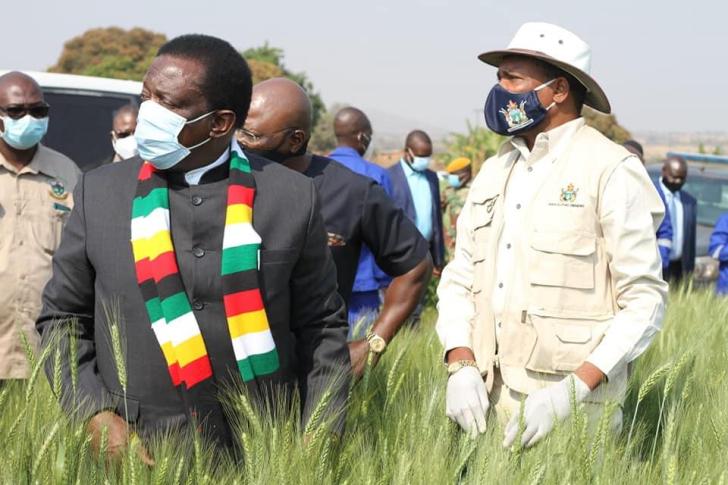News / National
Zanu-PF title deed bait misfires
01 Nov 2024 at 06:49hrs |
0 Views

The ruling ZANU-PF party's election pledge to regularise informal settlements is progressing slowly, with only 11,000 title deeds issued in Harare's Epworth suburb since the start of 2023, according to information obtained by NewsDay. This sluggish pace raises concerns about the government's commitment to addressing housing insecurity for residents living in informal settlements.
Ahead of the August 2023 elections, ZANU-PF had promised voters that it would regularise over 80,000 illegal settlements, providing title deeds to tenants who faced the constant threat of eviction and demolition of their homes. A title deed is a critical legal document that defines property ownership, allowing holders to securely possess and transfer their property.
Many residents remain without title deeds for land they were allocated by suspected land barons, often with ties to the ruling party. In response to this issue, the Cabinet endorsed the Kwangu/Ngakwami Presidential Title Deeds Programme Consortium, designed to facilitate the financial and technical support necessary for title deed issuance.
Lands Minister Anxious Masuka, addressing lawmakers in the National Assembly on Wednesday, revealed the disappointing figures. "In Epworth, there are a few people who were given title deeds, but we were told in the meeting that we held recently that there are 11,000 title deeds which have been distributed, and that the team is now going to Caledonia and other new residential suburbs," Masuka stated.
He acknowledged the urgent need to address the issue of eviction notices being issued to settlers, despite the government's claims of regularising illegal settlements. This situation has left many residents in a precarious position, especially after previous efforts in 2020 and 2021 led to the destruction of numerous structures, causing significant losses for homeowners and informal traders.
Both Harare and Chitungwiza municipalities have recently taken a hard line against illegal structures, particularly in sensitive areas like wetlands. A report from a land commission of inquiry, led by Justice Tendai Uchena and presented to President Mnangagwa in December 2019, highlighted the illegal sale of urban state land by land developers and politically-connected individuals, amounting to an estimated US$3 billion.
As of 2023, government statistics indicate that the Harare Metropolitan province has 52,000 houses in illegal settlements, with 25,000 located in Chitungwiza. Critics argue that the authorities are merely rushing to regularise these illegal structures in areas controlled by ZANU-PF as a tactic to win votes, rather than genuinely addressing the pressing issue of housing insecurity for residents.
With only a fraction of the promised title deeds distributed, the future of informal settlements and the residents who call them home remains uncertain. The government's actions in the coming months will be closely scrutinized as stakeholders demand accountability and transparency in the regularisation process.
Ahead of the August 2023 elections, ZANU-PF had promised voters that it would regularise over 80,000 illegal settlements, providing title deeds to tenants who faced the constant threat of eviction and demolition of their homes. A title deed is a critical legal document that defines property ownership, allowing holders to securely possess and transfer their property.
Many residents remain without title deeds for land they were allocated by suspected land barons, often with ties to the ruling party. In response to this issue, the Cabinet endorsed the Kwangu/Ngakwami Presidential Title Deeds Programme Consortium, designed to facilitate the financial and technical support necessary for title deed issuance.
Lands Minister Anxious Masuka, addressing lawmakers in the National Assembly on Wednesday, revealed the disappointing figures. "In Epworth, there are a few people who were given title deeds, but we were told in the meeting that we held recently that there are 11,000 title deeds which have been distributed, and that the team is now going to Caledonia and other new residential suburbs," Masuka stated.
Both Harare and Chitungwiza municipalities have recently taken a hard line against illegal structures, particularly in sensitive areas like wetlands. A report from a land commission of inquiry, led by Justice Tendai Uchena and presented to President Mnangagwa in December 2019, highlighted the illegal sale of urban state land by land developers and politically-connected individuals, amounting to an estimated US$3 billion.
As of 2023, government statistics indicate that the Harare Metropolitan province has 52,000 houses in illegal settlements, with 25,000 located in Chitungwiza. Critics argue that the authorities are merely rushing to regularise these illegal structures in areas controlled by ZANU-PF as a tactic to win votes, rather than genuinely addressing the pressing issue of housing insecurity for residents.
With only a fraction of the promised title deeds distributed, the future of informal settlements and the residents who call them home remains uncertain. The government's actions in the coming months will be closely scrutinized as stakeholders demand accountability and transparency in the regularisation process.
Source - newsday
Join the discussion
Loading comments…



























